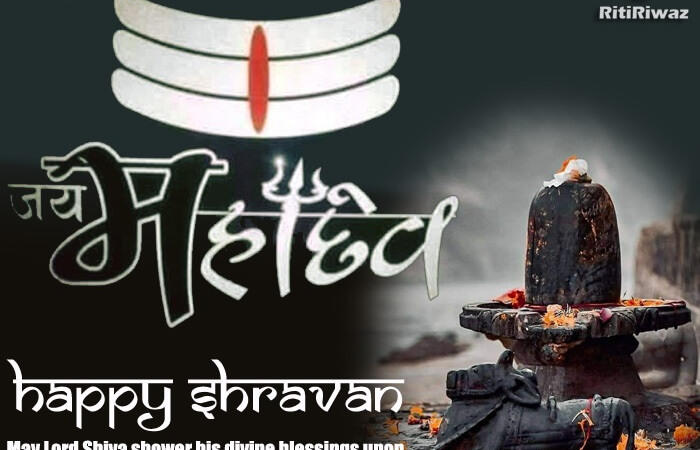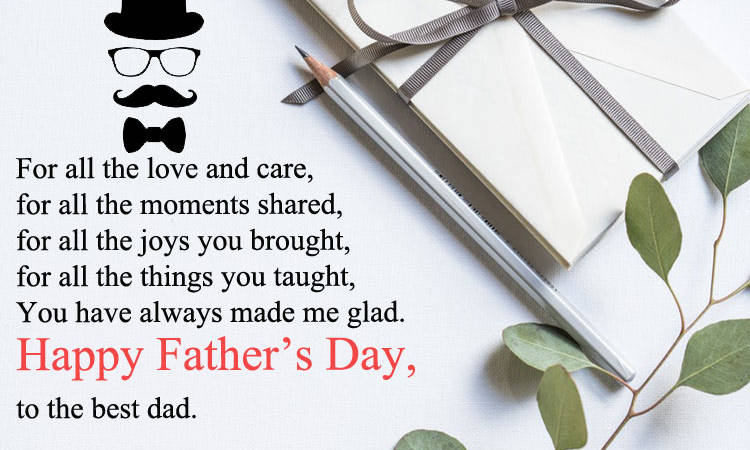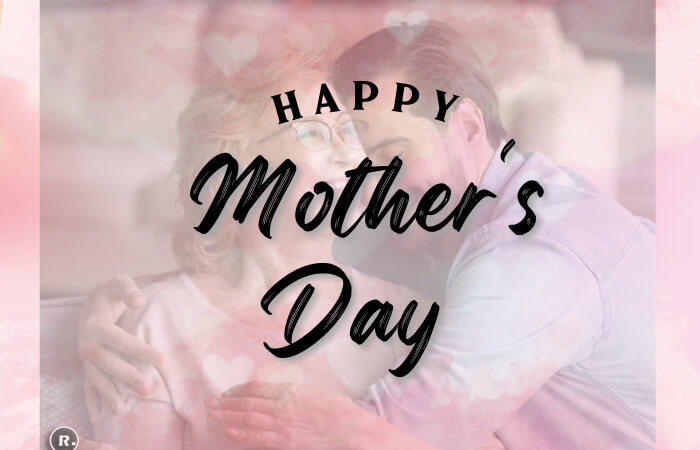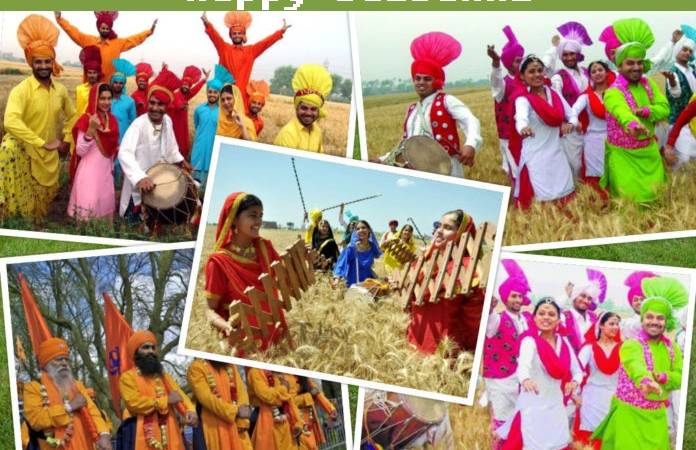Raksha Bandhan – A festival of brother and sister
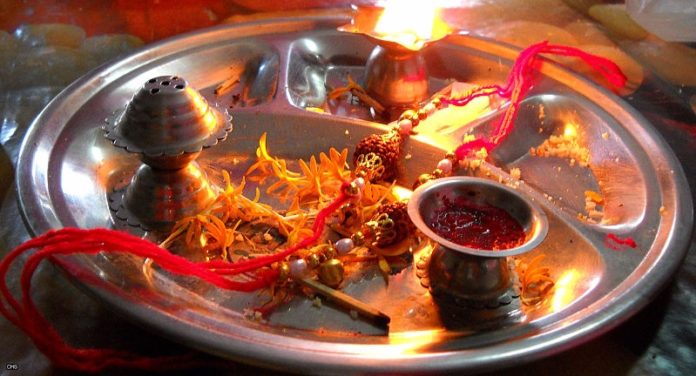
Raksha Bandhan festival is celebrated among Hindus throughout the world. The festival of Raksha Bandhan celebrates love and affection between a brother and sister. It falls in the Hindu month of Shravan (generally August). However, the date is not fixed and is calculated every year.
In 2024 Raksha Bandhan is on August 19th, Monday.
Also known as Rakhi, it involves the tying of a thread, known by the same name, on the wrists of brothers by their sisters. In return, the brothers promise to protect their sisters from all the hazards and harmful influences in her life. Traditionally, first, a thali is prepared and the girl does aarti of his brother, ties Rakhi on the wrist, and puts some sweets in his mouth.
During the festival of Raksha Bandhan in Delhi, the markets are flooded with traditional as well as modern types of Rakhis. These days, Rakhis are decorated with all sorts of things like cartoons, film characters, toffees, etc. Even gold and silver bracelets are tied as Rakhis. Rakhi celebrations give families a chance to take a break from the hectic city life and spend some time with their families. There are a number of legends associated with the festival of Raksha Bandhan.
The significance of Raksha Bandhan
Raksha Bandhan means to tie or knot of protection. The word Raksha is protection and Bandhan is a tie. This festival celebrates the love bonding between brothers and sisters. The sister prays for the well-being of the brother and tie thread, in return the brother pledge to take care of his sister. Not only within the family but this festival goes between cousins or distant family members too. The festival transcends biological family, brings together men and women across religions, diverse ethnic groups, and ritually emphasizes harmony and love.
Suggested Read: Raksha Bandhan Mehndi Design
Lumba Rakhi: A special Rakhi for brother’s wife
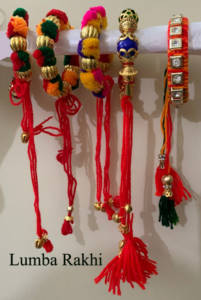
Raksha Bandhan is an auspicious festival in the Hindu religion that symbolizes the lovely bond between brother and sister. Besides tying rakhi on the wrist of the brother, Lumba rakhi is also tied to the bangle of the brother’s wife. Lumba rakhi is a beautifully decorated thread that is seen on the wrists of married women on this special day of Raksha Bandhan, thus making the festival more beautiful and colorful. This rakhi is meant to strengthen the relationship between sisters-in-law i.e. nanad and bhabhi. This ritual is known to get its origin from Malwaris, but considering its significance, it is increasingly celebrated in other communities nowadays.
Legends
The “Bhavishya” Purana mentions a battle between gods and demons. Fearing the defeat of gods, Indra (king of the gods) felt disheartened. At that point in time Sachi, the wife of Indra charged a thread with Mantras (sacred verses) and tied it on his wrist for protection. It is said that because of the power of that sacred thread Indra defeated all the demons. From that day onwards, the festival of Rakhi is celebrated amongst the Hindus. It is also believed that Emperor Humayun had received a Rakhi from the queen Karmavati of Chittor. So, in the performance of his brotherly duty, he protected her from his own soldiers. Such is the power of this sacred thread.
According to another legend of Yama and the Yamuna. Yama, the God of Death, had not visited his sister Yamuna for 12 years. The Yamuna, the goddess of the Yamuna river, was sad and consulted Ganga, the goddess of the Ganga river. Ganga reminded Yama of his sister, upon which Yama visits her. The Yamuna was overjoyed to see her brother and prepared a bounty of food for Yama. The god Yama was delighted and asked the Yamuna what she wanted for a gift. She wished that he, her brother should return and see her again soon. Yama was moved by his sister’s love, agreed, and to be able to see her again, made river Yamuna immortal. This legend is the basis for a Raksha Bandhan-like festival called Bhai Duj in some parts of India, which also celebrates brother-sister love, but near Diwali.
According to others, Krishna considered Draupadi his friend. When Krishna cut his finger while beheading Shishupal, Draupadi immediately tore off a piece of her sari and bandaged his cut. Krishna said that with this loving act, she wrapped him in debt and he would repay each “thread” when the time arrives. Indeed, whenever Draupadi needed Krishna’s protection she fervently prayed for his help, he came to the rescue and gave her unlimited cloth. This is one of the stories of the origin of the Raksha Bandhan festival. In the epic Mahabharat, Draupadi tied a rakhi on Krishna, while Kunti tied her rakhi on her grandson Abhimanyu, before the great war.
Suggested Read: Raksha Bandhan Legends
Celebration
Raksha Bandhan is viewed as a non-denominational, multicultural event. Priests tie rakhis around the wrists of congregation members. Rakhis are often shared between close friends. Women tie rakhis around the wrists of the heads of state, political parties, or social leaders. Ceremonies are also held to tie Rakhi around the wrists of soldiers. The festival centers on the mutual bond of protection whereby siblings pray for each other’s wellbeing.
Raksha Bandhan Mantra:
Though many may not be aware of it, there is a certain Raksha Bandhan mantra which sisters chant while tying Rakhi on the wrists of their brothers. The mantra goes as follows:
येन बद्धो वली राजा दानवेन्द्रो महाबलः ।
तेन त्वा प्रतिबध्नामि रक्षे माचल माचल ॥
The mantra means
I am tying on your hand this Raksha, with which the most powerful and generous King Bali himself was bound; O Raksha, don’t go away; don’t go away.
Happy Raksha Bandhan 2024: Quotes, Wishes, Messages, SMS, Facebook and Whatsapp status

